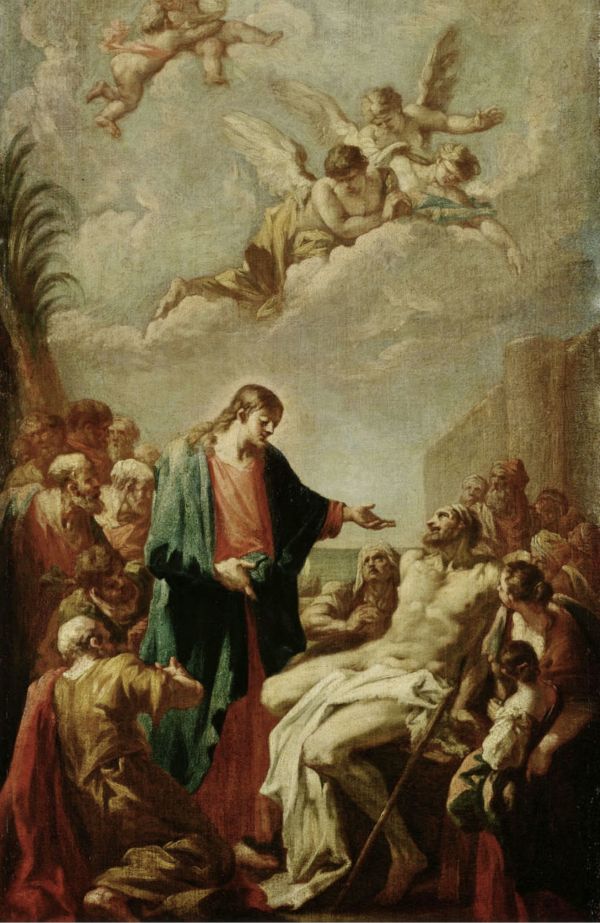(Mt 9:1-8)
The episode testifies to the hard clash between synagogue and the first fraternities of Faith, where without prior conditions of ritual or legal purity everyone was invited to share canteen and the breaking of Bread.
On the ideal proxy of the Lord, in the churches of Galilee and Syria there was already a fraternal practice [unknown to others] of mutual forgiveness and even cancellation of debts incurred, up to the communion of goods.
Reality able to get back on its feet and make any person proceed, even the miserable - starting from their conscience (v.2), suffocated by a religion that emphaized the sense of unworthiness.
According to popular belief, the conditions of scarcity or misfortune were a punishment.
Conversely, Jesus is the One who restores a horizon of authenticity to believing, new awareness and hope to the person suffering from paralysis - that is, unable to go towards God and towards men.
«Having risen, take your bed and go to your house» (v.6; cf. Mk 2:11; Lk 5:24).
Starting from what we are - already full of resources, beyond all appearances - we live by faith the state of the «Son of man»: that of the ‘risen’ sons, those who manifest person in fullness [in the divine condition].
In Christ we can free ourselves from the constraints that made us live horizontal and ankylosed.
Recovering dignity, we can now stand upright and promote life; then return to the House that’s truly ours (vv.6-7; cf. Mk 2:10-12; Lk 9:24-25).
The whole story of the people was conditioned by obsessions with impurity and sin.
Instead, the Master reveals that the divine propensity is only to forgive in order to value - and the attitude of the man of Faith, be reborn again and help to do so.
In fact, the gratuitousness of the Father can be seen from the action of expectation and understanding exercised by the men of God: those able to chisel healthy environments.
Not only by their own’s virtue, but because tolerance introduces new forces, unknown; different powers, which overturn situations.
They allow other creative energies to pass and regenerate the malfunctioning - vice versa deadly, unfortunately, where we do not promote each other.
Only Jesus is the One who makes visible and evident the healing that seemed impossible mission. And before physics, making us flourish again from the fears of false devotion, which imposes absurd embankments on autonomy.
His proposal doesn’t sink us under a heap of impersonal arrogances. The Lord heals the blocked, puts them back in the race.
Imperfection is not an expression of guilt, but a condition - and in any case sin is not an absolute force (v.3).
On the contrary, the impediment becomes a paradoxical reason to seek 'therapy', and vis-à-vis. Unthinkable, perhaps offensive, for the outline.
Eccentric configurations - thought to be miserable - do indeed contain secret doors, immense virtues, and the cure itself.
Indeed, they lead to a new existence. They urge, and “oblige” us to an immediate relationship with our Lord. Almost as if seeking His ‘likeness’.
Unusual crossroads of Tenderness and Faith.
[Thursday 13th wk. in O.T. July 4, 2024]












